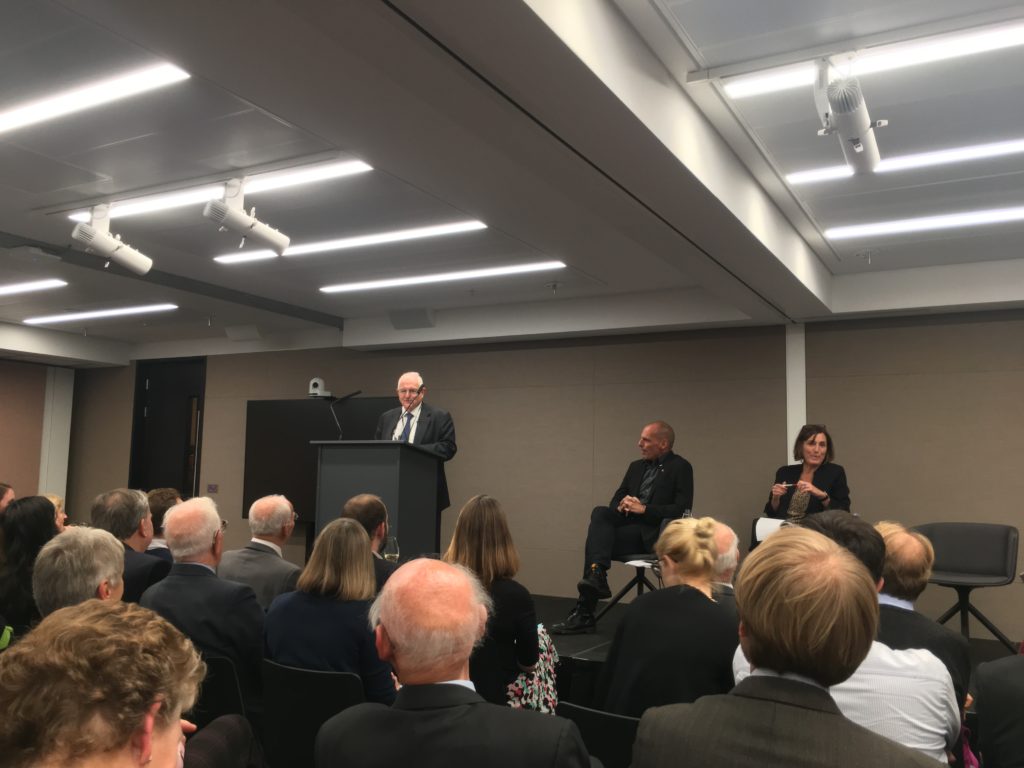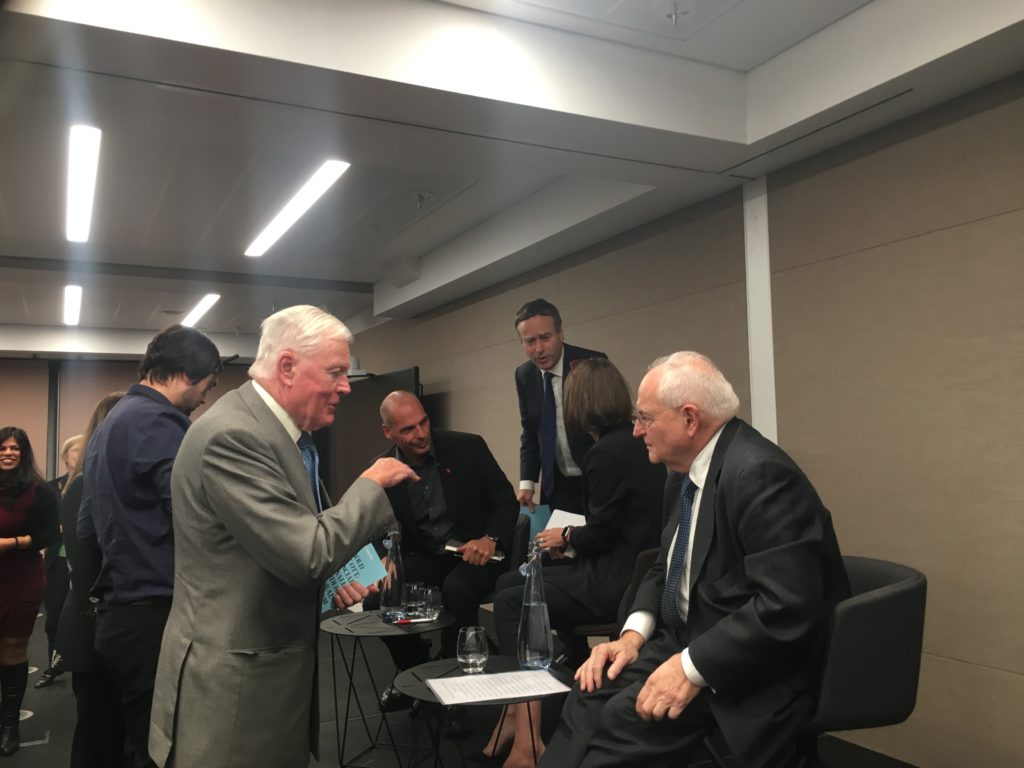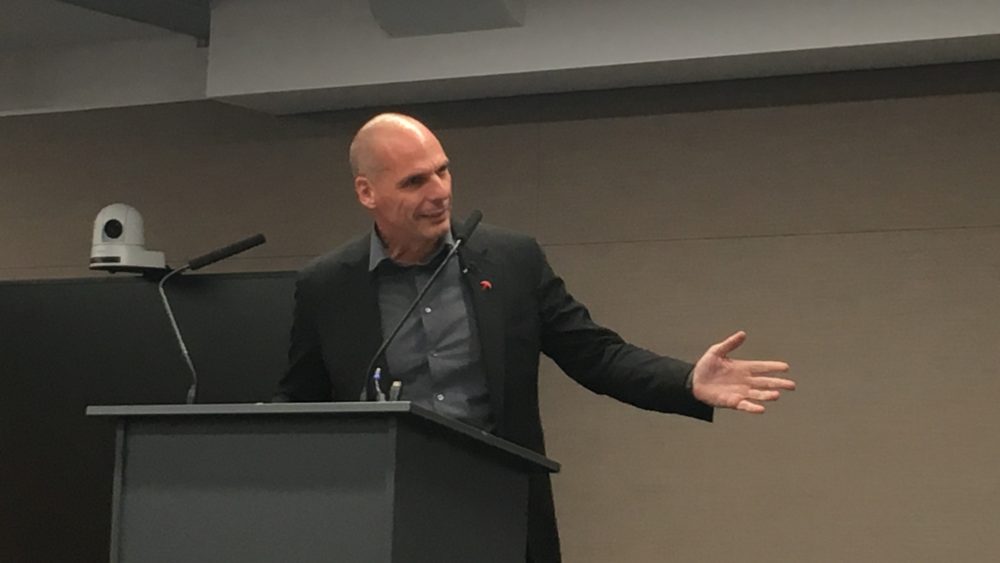“Should liberal capitalism be saved?” was the topic of a truly enlightening debate between Yanis Varoufakis and Martin Wolf at the Financial Times last week, at an event marking the fiftieth anniversary of the death of Harold Wincott.
As expected, Martin Wolf gave a glowing endorsement of private enterprise, citing the staggering reduction in absolute poverty, the meteoric rise in Chinese GDP per capita, the abysmal failure of East vs. West Germany or North vs. South Korea, and similar well-known points. He stressed privatisation and de-regulation of labour markets as key components of this success, while admitting the need for a minimum wage, less protection of intellectual property and, above all, greater restrictions on mergers and acquisitions and tighter regulation of the financial system.

His insistence on greater redistribution of income and state provision of essential public goods came as a surprise to some of the audience, but during the whole of his speech as well as the Q&A he regularly stated his belief that things have gone quite well, there is no reason for alarm, and everything would sort itself out somehow in the end – maybe through more state regulation, as it seems we always alternate between periods of lighter and heavier state regulation, while relying on the engine of capitalism.
Based on nothing but his general optimism, Wolf avowed not having any concern about the threat that money and the xenophobic right pose to our democracy, and while he freely admitted that he had no hopes that capitalism would solve the problem of climate change, he did not seem particularly concerned about this prospect once he had assigned its solution to the realm of the state. If people had hoped to hear some concrete solutions from him, they were disappointed.
On the topic of climate change, Yanis Varoufakis passionately defended the idea of a Green New Deal, whether at the European or the international level, which would channel 5% of GDP every year into the green transition — combating climate change and creating lots of well-paying jobs in the process. If the European Investment Bank issued green bonds to finance this, and the ECB stood ready to prop up green bonds if necessary, or alternatively if the IMF financed this through the implementation of Keynes‘ idea of an International Clearing Union, this would be an example of how capitalism’s existing tools could be used for progressive purposes. Of course Varoufakis also agreed with Martin Wolf’s assessment that we need to regulate banks, redesign the Eurozone’s architecture, fight poverty through redistributive politics and so on.

Unlike Wolf, he didn’t stop there. Vindicating Marx’s prediction, he pointed out that the chasm between those who own shares in a company but don’t work there, and those who work there but don’t share in the company’s profits, has widened considerably since Adam Smith’s time and that this would accelerate even more in the coming decades, as AI and robots allow the capital owners to produce even more with even less workers. However, workers who have been laid off cannot buy anything. Given this outlook, the question is no longer whether we should save capitalism but whether it could even be saved. Varoufakis seems to think that in the long term the answer is No.
That is, while in the short term we should redeploy capitalism‘s tools in order to lessen suffering, we simultaneously need to work towards a post-capitalist liberal society which will eventually allow humans to spend their time philosophising while robots do all the work.
One of the elements could be a Universal Basic Dividend (UBD), similar to a Universal Basic Income but based on a part of companies‘ shares entering a public wealth fund. Or corporations on whose direction nobody could vote except those who work there. States that no longer collect personal income tax or VAT but only land and corporate taxes. There is no space to list all the transformative ideas for the short and long term that Varoufakis presented either during his talk or during the Q&A.
As philosopher Slavoj Žižek once said, it is a remarkable sign of our times that even the brightest minds would rather fathom the end of the world than plan for the demise of capitalism.
The majority of the conservative minds assembled at the Financial Times certainly saw the continuation of capitalism as a given, no matter the title of their debate. And yet the mood seemed different at the end of the event than before. Some were disconcerted to find that, on today’s pressing questions, the establishment had nothing substantive to offer, while the Marxist, brought in as a foil, had provided ample food for thought.
Do you want to be informed of DiEM25's actions? Sign up here










